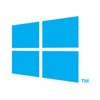 Microsoft announced Wednesday it will tweak the release of its forthcoming Windows 8 operating system to comply with the European Commission, which argues that in its current state, the software fails to offer customers a browser choice screen to let them “easily choose their preferred web browser.”
Microsoft announced Wednesday it will tweak the release of its forthcoming Windows 8 operating system to comply with the European Commission, which argues that in its current state, the software fails to offer customers a browser choice screen to let them “easily choose their preferred web browser.”
The browser choice issue was also present in Windows 7 and according to the European Union antitrust commissioner Joaquin Almunia this morning, the EU has been in contact with Microsoft to ensure it doesn’t repeat the same mistake.
According to reports, Microsoft was advised to remedy the issue “if they don’t want to take the risk of a new investigation,” Almunia warned at press conference earlier today.
The EU initially took issue that Microsoft’s Windows 7 Service Pack 1, released in February 2011, failed to offer users a choice, something the company has been legally bound to do in Europe since December 2009. After that ruling, the EU mandated that Microsoft display a choice screen to “address competition concerns.” While the choice screen popped up in March 2010 as part of a five year agreement, from February 2011 to July 2012, the “choice screen” disappeared from Windows.
“If infringements are confirmed, Microsoft should expect sanctions,” Almunia warned in July, when proceedings against Microsoft over the most recent issue were opened.
Microsoft claimed the lack of a “choice screen” was a due to a technical error and claims it has taken steps to ensure the problem doesn’t happen again. It will implement changes to Windows 8 before its release later this week, the company acknowledged in a press release today.
In the U.S., Windows 8 is slated for release on Friday, while a tweaked version, Windows 8 Pro N will be released in Europe without Windows Media Player. Similar to the browser choice ruling, the EU ruled in 2004’s “Microsoft competition case,” that tying the player to Windows was an “abuse of a dominant position.” In response, the Microsoft had to release a version of its Windows software with its flagship media player stripped out. (.PDF)
The EU is known for taking a tougher stance toward user privacy than the U.S., along with enforcing its competition law — a law that is effectively the equivalent of the U.S.’s antitrust law. The commission fined Microsoft twice, in 2004 and 2008 after it determined it had gained unfair market advantage with its Windows platform.









